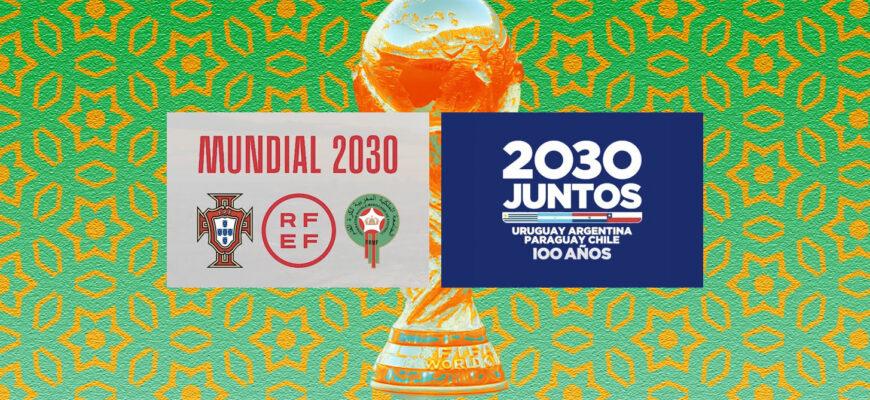The FIFA World Cup, football`s ultimate global spectacle, is no stranger to evolution. From its humble beginnings to its current colossal scale, the tournament has continually adapted, always aiming to balance tradition with the ever-growing demands of a worldwide audience. Lately, however, a particularly ambitious proposal regarding the 2030 edition – an expansion to a staggering 64 teams – has met with a decisive “no” from FIFA. While the idea championed inclusivity and a grand centenary celebration, the governing body has opted for a more pragmatic path.
The Audacious Proposal: A 64-Team Centennial Tournament
The concept of a 64-team World Cup for 2030 originated from CONMEBOL, the South American football confederation, with Uruguay playing a significant role in advocating for the change. The premise was compelling: 2030 marks the centennial of the very first World Cup, hosted by Uruguay in 1930. What better way to honor this historical milestone, proponents argued, than with an unprecedented expansion that would truly embody football`s global reach?
This vision wasn`t merely about size; it carried a profound aspiration. For CONMEBOL, a 64-team format could potentially guarantee spots for all ten of its member nations, transforming a long-held dream into reality for countries like Venezuela, which has yet to qualify for the final phase. The logistical blueprint would see primary hosting duties shared by Spain, Portugal, and Morocco, while Argentina, Paraguay, and Uruguay would ceremonially host some of the initial matches, adding an intercontinental flair to the celebrations. The sheer scale would be immense: 128 matches packed into less than a month, a logistical Everest that would challenge even the most experienced event organizers.
FIFA`s Deliberate Restraint: Quality Over Quantity
Despite the emotional and historical weight behind the 64-team proposal, FIFA President Gianni Infantino and the organization`s Council ultimately concluded that such a rapid and dramatic expansion was not in the best interest of the tournament. Following various discussions, including a key meeting between Infantino and CONMEBOL President Alejandro Dominguez in New York City, the prevailing sentiment within FIFA leaned towards caution.
The core reasons for this rejection are firmly rooted in strategic considerations, balancing sporting integrity with the tournament`s commercial model:
- Risk of Dilution: A primary concern was the potential for a significant increase in “uncompetitive matches” during the group stage. While upsets are part of football`s charm, a surfeit of lopsided games could diminish the overall quality, excitement, and competitive edge that defines the World Cup, particularly in its early phases.
- Logistical Overload: Organizing 128 matches across multiple nations in such a condensed timeframe presents colossal logistical challenges. Managing team travel, security, fan accommodation, and stadium readiness on such an amplified scale would push existing infrastructure and planning capabilities to their absolute limits.
- Impact on Business Model: Beyond the pitch, the World Cup is a meticulously managed commercial entity. The argument was that a diluted group stage, perceived as less compelling, could negatively affect broadcast viewership, sponsorship revenues, and the overall commercial appeal. As one source candidly noted, “it would risk damaging the business model.” This highlights the practical economic realities that underpin even the most passionate sporting decisions.
Building on Existing Expansion: The 2026 Precedent
It`s crucial to acknowledge that the World Cup format is already undergoing a substantial change. The forthcoming 2026 tournament, hosted jointly by the United States, Mexico, and Canada, will feature 48 teams, an increase from the 32-team structure that had been consistent since 1998. This expansion, representing a 50% jump in participating nations, is a significant undertaking in itself. To introduce another, even larger, expansion just four years later for the 2030 edition was evidently deemed too ambitious, too soon, potentially disrupting the careful rollout of the new 48-team format.
Despite the ultimate decision, the spirit of ambition remains. CONMEBOL President Dominguez articulated this sentiment, stating,
“We want to call for unity, creativity, and believing big. Because when football is shared by everyone, the celebration is truly global.”
Similarly, Argentina FA president Claudio Chiqui Tapia expressed his country`s commitment to the broader vision, affirming efforts “to organize what will be the 2030 World Cup.”
Striking a Balance: The Future of Football`s Crown Jewel
The decision to maintain the 48-team format for 2030 reflects FIFA`s strategic balancing act: acknowledging the universal desire for greater inclusivity while rigorously safeguarding the tournament`s quality, prestige, and operational viability. While the romantic ideal of a truly massive global festival is appealing, the cold, hard facts of logistics and competitive integrity often dictate a more measured pace of change.
The 2030 World Cup, with its multi-continental hosting and centenary celebrations, is already set to be a momentous event. For now, it seems the enduring magic of football`s ultimate competition will continue to be found not merely in its ever-increasing size, but in the intense quality and compelling narratives generated by its carefully managed competitive structure. The debate over expansion, however, is a perennial one, likely to resurface as the beautiful game continues its relentless march towards a globalized future.









